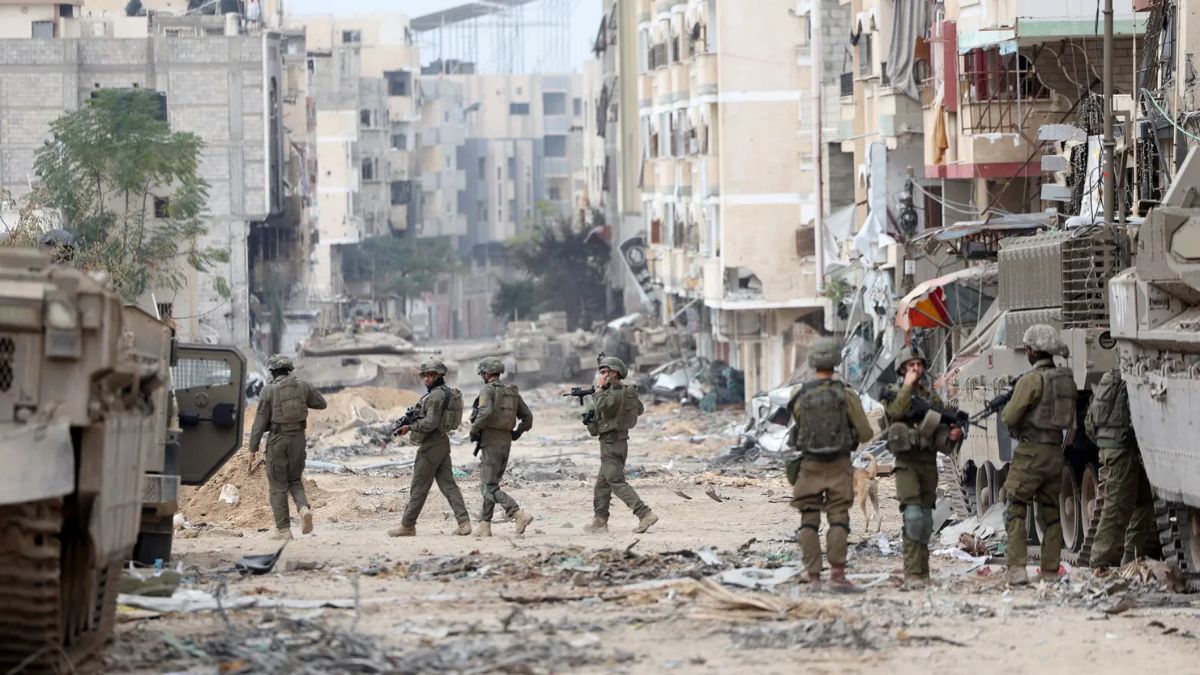Ahead of the ceasefire talks in Qatar later this week, Israel chief negotiator David Barnea has met with Egyptian spy chief Hassan Rashad, according to a report.
Barnea, the chief of Israeli external intelligence agency Mossad, is the pointsman for talks for a ceasefire in the Gaza Strip and release of hostages. As Israel and Hamas do not directly engage with each other, Egypt and Qatar mediate the talks with facilitation from the United States.
While talks have been stalled for over two months over the extreme positions of both Israel and Hamas, there has been a renewed push for a deal to end the war after the killing of Hamas chief Yahya Sinwar earlier this month.
Israeli Hebrew-language outlet Ynet reported that Barnea returned to Israel after holding talks with Rashad on Friday.
Barnea and Rashad discussed at length a new outline for a hostage deal and its advancement as well as closer cooperation in thwarting terrorism, said Ynet, according to an English translation of the news story.
Israeli sources told the outlet that the Barnea-Rashad meeting was in a good spirit.
The Barnea-Rashad meeting comes ahead of the meeting of US, Qatari, and Israeli negotiators in Doha on Sunda. US Central Intelligence Agency (CIA) Director William Burns and Qatari Prime Minister Sheikh Mohammed bin Abdulrahman Al Thani will be part of the meeting.
Impact Shorts
More ShortsEarlier, Rashad had held a meeting with Israeli internal intelligence agency Shin Bet’s chief Ronen Bar.
While Egypt will not be part of the talks on Sunday, it has been closely involved in efforts to get the negotiating process up and running again, according to The Times of Israel.
In addition to the Barnea-Rashad meeting, the newspaper reported that Egypt hosted a Hamas delegation on Thursday to discuss the terrorist group’s expectations for a potential deal. The Hamas delegation was led by deputy chief Khalil al-Hayya, who is also seen as one of the potential successors of Sinwar.
The AFP reported a senior Hamas official as saying that the delegation discussed “ideas and proposals” related to a ceasefire with Egyptian officials.
“Hamas has expressed readiness to stop the fighting, but Israel must commit to a ceasefire, withdraw from the Gaza Strip, allow the return of displaced people, agree to a serious prisoner exchange deal and allow the entry of humanitarian aid into Gaza,” said the Hamas official claimed.
During the October 7 attack, Hamas and allied groups took around 250 hostages. Of them, around 110 have been released or rescued, bodies of around 30 have been recovered, and around 100 are still understood to be in Gaza, a third of whom are understood to be dead. Talks are focussed at arriving at a ceasefire in lieu of the release of the hostages.
Even as Sinwar’s death along with ramped-up all-round pressure on Hamas and Hezbollah have led to hopes for a deal, it may be noted that the talks were stalled for a long time over a slew of demands that Israeli PM Benjamin Netanyahu had inserted into the original ceasefire proposal announced by US President Joe Biden in May. These demands, among others, included the continued Israeli control of Philadelphi Corridor along the Egypt-Gaza border and setting up of checking along an east-west Netzarim Corridor.


)

)
)
)
)
)
)
)
)



